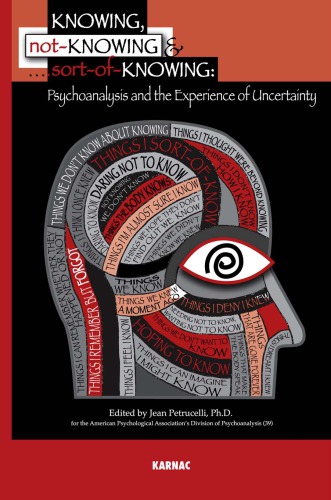Product desciption
Knowing Notknowing And Sortofknowing Psychoanalysis And The Experience Of Uncertainty Jean Petrucelli by Jean Petrucelli 9781855756571, 1855756579 instant download after payment.
Knowing, Not-Knowing and Sort-of-Knowing: Psychoanalysis and the Experience of Uncertainty is a contemporary, wide-ranging exploration of one of the most provocative topics currently under psychoanalytic investigation: the relationship of dissociation to varieties of knowing and unknowing. As editor Jean Petrucelli writes in her introductory overview of the anthology, “Although dissociation theory has existed side by side with the concept of repression in the history of psychoanalytic thought, for many years it was less examined, treated as if it belonged only to trauma theory.” Today, however, through the influence of relational models of psychoanalysis, spearheaded by Bromberg’s self-state theory, dissociation is becoming more widely appreciated as a central psychic mechanism pervading both normal and pathological functioning. This anthology is certain to contribute further to our appreciation of its importance.
The twenty-eight essays collected here invite readers to reflect upon the ways the mind is structured around and through knowing, not-knowing, and sort-of-knowing or uncertainty. The authors explore the ramifications of being up against the limits of what they can know as through their clinical practice and theoretical considerations, they simultaneously attempt to open up psychic and physical experience. How, they ask, do we tolerate ambiguity and blind spots as we try to know? And how do we make all of this useful to our patients and ourselves?
The authors approach these and similar epistemological questions through an impressively wide variety of clinical dilemmas (e.g., the impact of new technologies upon the analytic dyad) and theoretical specialties (e.g., neurobiology). Some of the numerous issues under examination here include important and, in some instances, under-theorized topics in psychoanalysis such as uncanny communication as the next frontier of intersubjectivity, secrets, criminal violence, the relationship of the body to knowing, disclosure of the analyst’s joy, dissociative identity disorder, pornography and sex workers.


